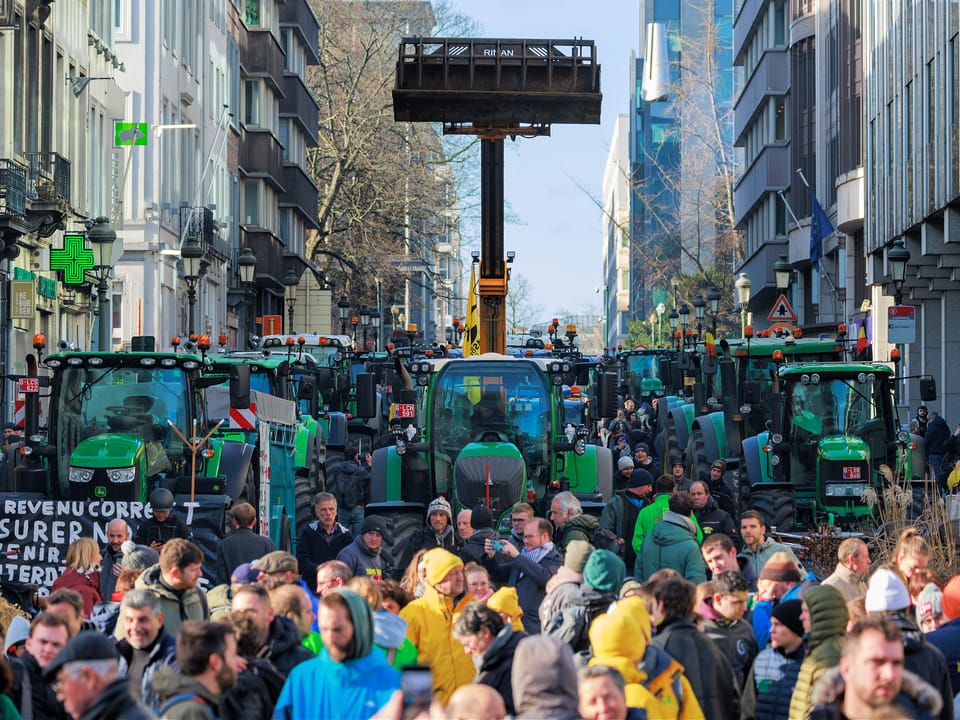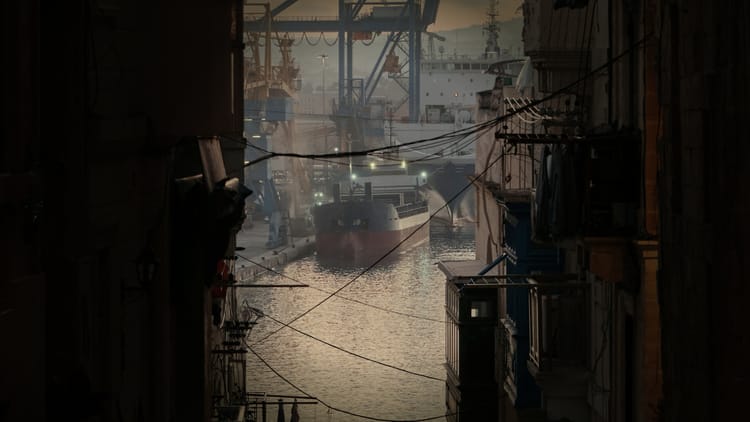Left over

Across more than 20 European countries this year, farmers have organized major—in some cases, spectacular—protests. In Spain, they destroyed truckloads of tomatoes imported from Morocco. In Poland, they drove some 500 tractors to a demonstration in Wrocław, where they threw eggs at a European Commission office. In France, about 1,000 protested in Toulouse, dumping rotten produce and manure in front of various government buildings. And in Germany, after weeks of organized protests, they strew manure on a highway outside Berlin, which ended up causing car crashes and seriously injuring five people.
Meanwhile, farmers have also managed to coordinate demonstrations across the continent. In February, they blocked roads in Spain, Belgium, Greece, Poland, Moldova, and Bulgaria, shutting down border crossings along with Europe’s second-largest port, Antwerp. The same month, farmers from a number of nearby countries drove some 1,300 tractors into Brussels, the seat of the European Union, throwing eggs and stones at the European Parliament; setting fire to hay and piles of manure in front of the building; and, in a variation on a theme, spraying local police with liquid manure. What is all this?
Matthias Matthijs is the Dean Acheson associate professor of international political economy at the Johns Hopkins University’s School of Advanced International Studies and a senior fellow with the Council on Foreign Relations. As Matthijs explains, the farmers are responding to a set of interconnected issues, all tracing back to the continent’s difficult-to-sustain agricultural economy—even as the protests themselves target new climate policies that would drive up farmers’ already high production costs.
The protests are succeeding, too, with governments repeatedly agreeing either to delay or to soften the climate regulations the farmers oppose. In the meantime, farmers remain immensely popular across Europe, including its cities. They’re also increasingly popular with, and attracted to, Europe’s growing populist right. After decades of mostly backing center-right Christian Democratic parties, European farmers are responding more and more to populist-right emphatic support for traditional values and unrelenting opposition to foreign goods. And as the populist right prepares to become the largest bloc in the European Parliament after EU elections in June, the farmers’ priorities are apt only to feature more prominently among the EU’s …
Michael Bluhm: What set these protests off?






